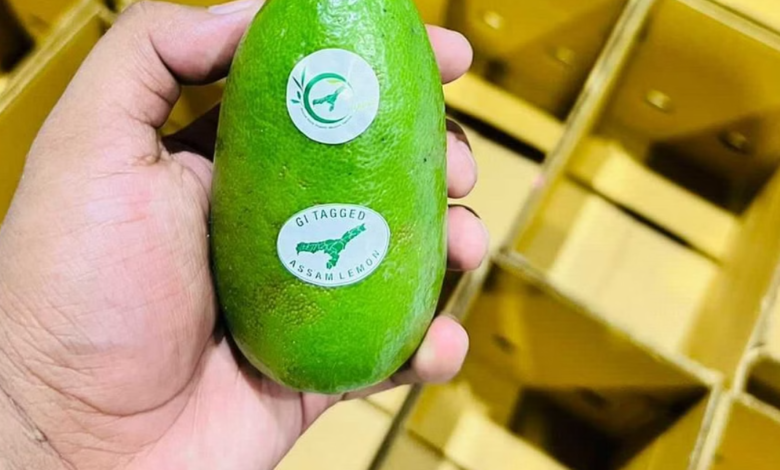The Globalization Of The Humble Lemon, Kaji Nemu

Farmers are growing fragrant lemons that are now sought-after by London and Dubai in a little village in Assam’s Baksa district, over 100 kilometers from Guwahati and formerly known for ULFA training camps for terrorists. Every Assamese home has long relied on the native kind of lemon known as Kaji Nemu. People don’t even trash the lemon’s rind or leave because of how good it tastes.
Baksa to London
The Kaji Nemu’s international adventure began, like most worthwhile endeavors, following a seemingly benign chat that Ayush Garg had while serving as the deputy commissioner of Tinsukia. He learned from a resort owner that many Assamese families now reside in London and yearn for foods from their native country.
Although the road to Aouhata is rough, it is green with rice fields on either side. The road leading up to Soniram Topo’s two-bigha Kaji Nemu farm is flanked by Assamese-style dwellings, which are single-story, mostly pucca, partially thatched huts.
In the Gati region, there are about 2,000 households involved in lemon farming. It has brought in a lot more money for Aouhata. The majority of farmers cultivate rice as their main crop, but they also have about two bighas of land set aside for lemon orchards. When the farmer-producer company was established in 2020, its relationship with the Nilachal Agro Producer Company began. To promote the Kaji Nemu and obtain the greatest prices for the producers, it has been working nonstop.
Kiega Exims Pvt Ltd is in charge of the shipment and distribution of the lemon to London’s New Spitalfields Market. It is a top wholesale market for fruits, vegetables, and flowers in the UK.
Accidental fruit
Despite all of its notoriety in Assam thalis, the Kaji Nemu was a discovery by accident. The variety was reportedly discovered as a chance seedling in the Burnihat citrus station, according to the information brochure on GI tags in India. It was a substance gathered from the Hashara village in Sivasagar with the name Chinakaghi. In 2020, Kaji Nemu acquired the GI tag.
What makes the Kaji Nemu of Assam unique enough to warrant export?
The kaji nemu is distinct from the common North Indian type, which is fashioned like a round table tennis ball. Its size is almost three times that of a lemon, and it contains 1.08 to 2.10 g of citrus per 100 ml. It is also good for production because it produces fruit all year long and prevents the fruits from being damaged by falling from the tree even when they are overripe.
Intercropping, or growing crops next to lemon trees, is another benefit. Papaya, pineapple, and more recently, the pricey dragon fruit, are other possibilities that are frequently farmed.
There is still a long way to go
The narrative is not over even if over 4,000 pieces of Kaji Nemu made it to London. A consistent effort is required to ensure the farmers have a healthy profit margin.
The Narendra Modi administration’s Horticulture Mission for North East and the Himalayan States is driving the present effort to try to develop international markets for regional crops.
There is a drive for farmer-producer firms to learn and apply marketing tactics so that farmers like Topo can obtain better pricing. This effort includes everything from seminars to financing. However, there is currently optimism that other nations and states in India may desire to sample Assamese Kaji Nemu as well.
News Mania Desk






